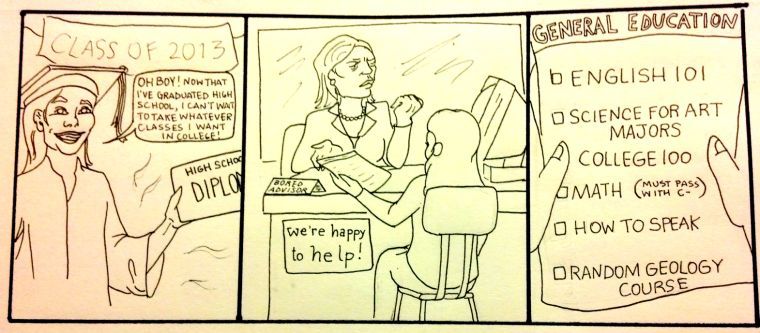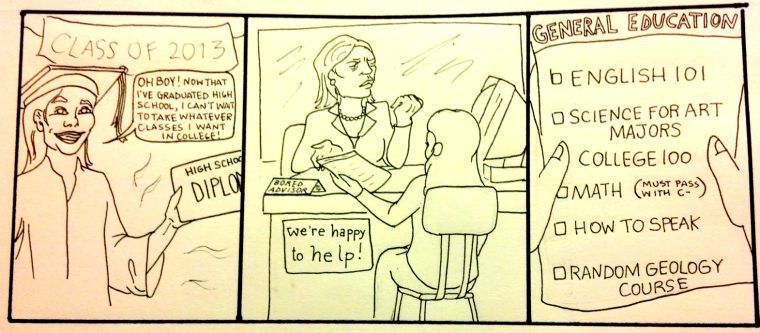It’s really starting to feel like fall — beautiful golden-brown leaves falling from the trees, crisp, cool weather in the air, and testudo.umd.edu bookmarked on our computers. It’s class registration season.
As students pick their classes for the spring semester, many will come to question the CORE courses they need to take. Some see General Education requirements as crucial to a well-rounded, balanced college experience. Others see them as a waste of time, distracting from the true purpose of college — studying what you love.
In today’s digital edition, our columnists debate the good, the bad and the ugly of this university’s General Education requirements.
Our staff editorial challenges the current format of the courses:
“All too often, the introductory courses offered to fulfill these core requirements are large lectures, with topics too broad, classes too big and subject matter too dull.”
Caroline Carlson says a well-rounded learning experience is important, but that General Education classes should be less, well, general:
“The university should make more of an effort to make general education classes interesting, specific and smaller.”
Ezra Fishman advocates for a better way to avoid bad classes:
“There has to be a system — whether it’s CourseEvalUM, OurUMD, RateMyProfessors, Reddit, a Facebook group — something that we can all, as a university, get together and use to offer advice to the poor freshmen who need to avoid the awful classes we were stuck with.”
Erik Shell explains the problems transfer students face when trying to fit old courses into UMD’s requirements:
“More than half of the classes I had already taken would count for absolutely nothing toward my new degree. Some stuff did, but not included were mathematics, history and both writing requirements.”
Tiffany Burba details her lone experience with General Education courses — COMM 107:
“I felt nothing more than utter disappointment. My professor was knowledgeable and friendly, but there seemed to be some key elements lost in the curriculum.”
Maggie Cassidy reminisces about her best core class — The Chesapeake Bay Ecosystem: Intersection of Science, Economics, and Policy:
“I was able to learn about a large facet of my life that I had ignored until that point, and I was actually able to apply what I learned in practice.”





